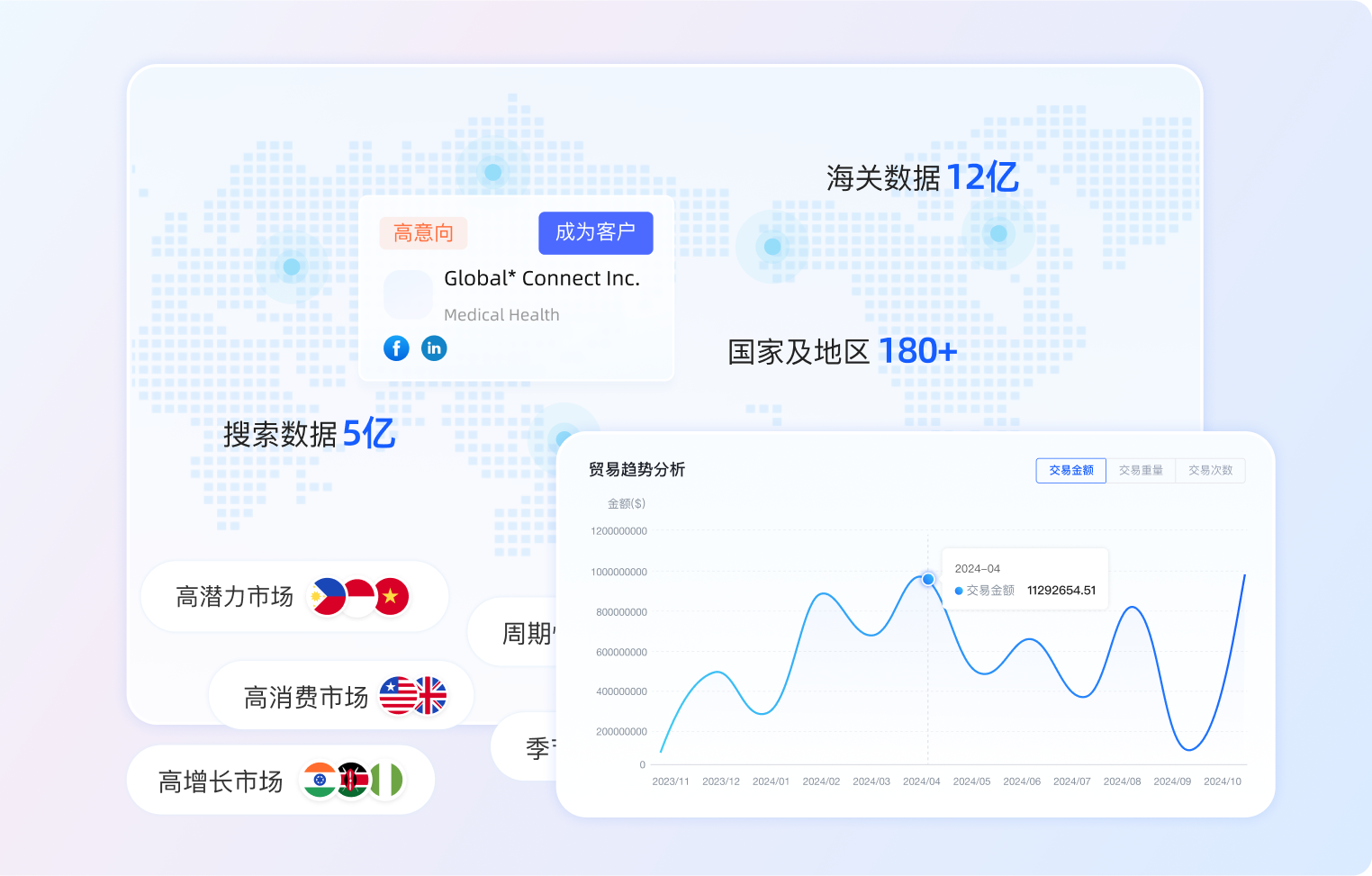 400-076-6558智领未来,外贸超级营销员
400-076-6558智领未来,外贸超级营销员
 400-076-6558智领未来,外贸超级营销员
400-076-6558智领未来,外贸超级营销员

Cultural conflicts can have a profound impact on foreign trade operations. For example, in a mechanical manufacturing company's deal with Middle - Eastern clients, a simple misunderstanding of local business etiquette led to the cancellation of a potentially large - scale order. The company's representatives did not follow the local custom of removing shoes before entering the meeting room, which was seen as a sign of disrespect.
Newcomers in foreign trade often face three major cultural challenges: language barriers, business etiquette, and differences in values. According to a survey, about 30% of foreign trade deals fail due to cultural misunderstandings, with language barriers accounting for 40% of these failures.
Newcomers can use various tools and channels to analyze target market cultures. Big - data analysis tools like Google Trends can help understand consumer behavior. For instance, by analyzing search trends, a fast - moving consumer goods company targeting the Southeast Asian market found that local consumers were more interested in products with natural ingredients. AB客智能分析 can also provide in - depth insights into market trends. Social media舆情监测 can show public sentiment towards different products and brands.
Local chambers of commerce and industry reports are valuable sources for learning about cultural taboos and business habits. For example, in the Middle - East, during Ramadan, business activities slow down significantly, and it's important to respect this religious period.

Time观念 varies across different regions. In Europe and the United States, being strictly punctual is highly valued. A meeting scheduled for 9:00 am means exactly 9:00 am. In contrast, in Latin America, time is more flexible. When it comes to communication style, Western cultures tend to be more direct, while Asian cultures are often more indirect. For example, in a negotiation with Japanese clients, a fast - moving consumer goods company learned that the Japanese were more likely to imply their opinions rather than stating them directly.
Religious and festival taboos are also crucial. In the Middle - East, certain numbers and colors have specific symbolic meanings. The color white is often associated with mourning, so using it in marketing materials might be inappropriate. During Ramadan, business operations should be adjusted accordingly.
In contract clause design, different regions have different focuses. German clients usually pay great attention to details in contracts, while Southeast Asian clients may value relationships more. For example, when a mechanical manufacturing company negotiated with German clients, they had to be very precise in defining every term in the contract. In non - verbal communication, gestures and expressions can be sensitive. In some cultures, a firm handshake is a sign of confidence, while in others, a lighter handshake is preferred. Maintaining appropriate eye contact also varies from culture to culture.
Here is a negotiation checklist:
Newcomers should build a copywriting taboo word library. For example, religious sensitive words and political metaphors should be avoided. In visual design, website color schemes and image selection need to be culturally compatible. A fast - moving consumer goods company targeting the Southeast Asian market found that using bright and warm colors in their website design was more appealing to local consumers.
There are several useful tools for newcomers. The Hofstede Cultural Dimensions Database can provide in - depth cultural analysis. The Culture Crossing Guide is a handy reference for understanding cultural differences. For translation, DeepL Professional Edition combined with a local review process can ensure accurate translations. In case of cultural conflicts, there are apology templates and trust - repair话术 available.
AB客 can generate detailed reports on target markets with just one click, providing comprehensive information on market size, consumer preferences, and cultural characteristics.

Companies can design internal training modules, such as cultural sand - table simulations and overseas field trips. Newcomers can also learn on their own through recommended books, documentaries, and industry communities. This long - term capacity building can help newcomers better understand and adapt to different cultures, reducing the risk of cultural conflicts in foreign trade operations.
Ready to start your foreign trade journey without the worry of cultural conflicts? Use AB客 to analyze your target market and gain a competitive edge!
.png?x-oss-process=image/resize,h_100,m_lfit/format,webp)
.png?x-oss-process=image/resize,h_100,m_lfit/format,webp)

.png?x-oss-process=image/resize,h_100,m_lfit/format,webp)
.png?x-oss-process=image/resize,h_100,m_lfit/format,webp)
.png?x-oss-process=image/resize,h_100,m_lfit/format,webp)
.png?x-oss-process=image/resize,h_100,m_lfit/format,webp)
